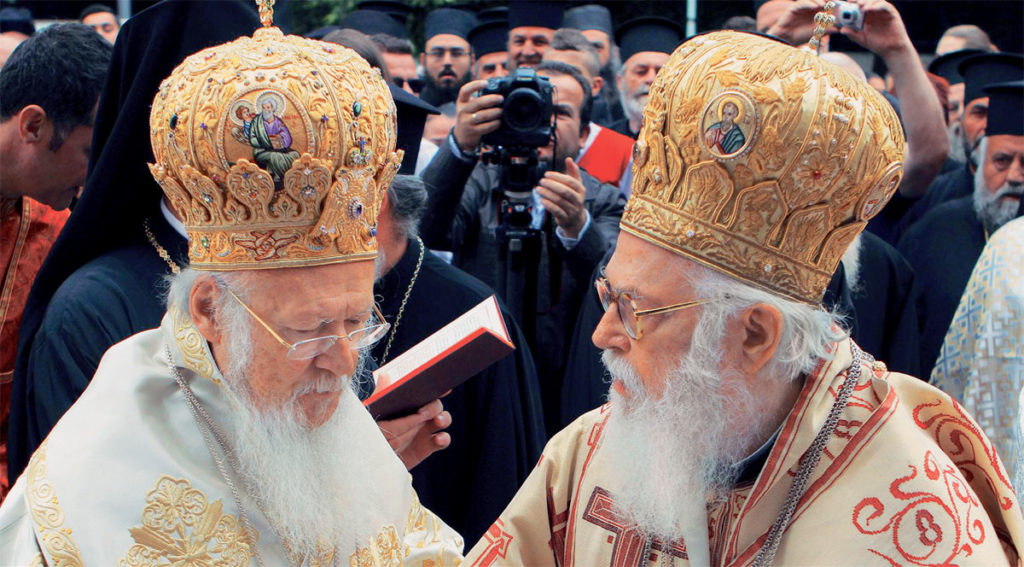by romfea.news
Ecumenical Patriarch Bartholomew, by a letter issued on Saturday evening, responds to the Archbishop Anastasios of Tirana and All Albania concerning the Autocephaly of the Church of Ukraine.
In his response, Ecumenical Patriarch claims that he has studied in depth the letter of Archbishop Anastasios of Albania, issued on January 14, about the developments in the issue of Ukrainian Church and the call for a Pan-Orthodox Synaxis “so as to prevent the danger of a Schism”.
As Patriarch Bartholomew characteristically mentions, the Ecumenical Patriarchate had always had the responsibility –not the privilege- to foresee the need of solving any problem at any local Church, and it openly declares its opinion without causing any kind of concern to the rest of the Patriarchs. Furthermore, Bartholomew highlighted the Canon rights “of the local sister Churches”.
Addressing Mr. Anastasios, Ecumenical Patriarch stresses that the past and present bestowals of the ecclesiastic status of Autocephaly have one and only aim: “the orderly functioning of any individual church, and not the production of false impressions and division of the One, Holy, United and Apostolic Church of God”.
In the same spirit, continues to explain Ecumenical Patriarch, we made the decisions on the case of the former Metropolitan Filaret of Kiev and Makarios of Lvov. Indeed, Bartholomew offered as an example the Schism of the Melitians, which was resolved, and its bishops and presbyters restored their status by a new ordination.
The Patriarch goes on to say that in the Church’s recent history, in 1945 in particular, the Church forgave the Church of Bulgaria which had been deposed and excommunicated by the Synod of 1872, restoring its status without a new ordination.
“Not least, when the Church of Russia, several years ago, due to high-level political pressure, forgave its up to then schismatic members of ROCOR, how did it accept them back again in communion, with a new ordination and rebaptism?” wonders Bartholomew.
He also stresses that “those who benefit the most” misinterpret the stance of tolerance and forbearance from the side of the Ecumenical Patriarchate as abandonment of the Church’s further course. “It is worth asking: why do those that agitate against their benefactors accept this bold slander of Mother Church and the Patriarch himself?”
Finally, Ecumenical Patriarch claims that the Ecumenical Patriarchate preaches the words of the inherited ecclesiastic texts, and has no self-interest or any other inferior motive and political expediency.
‘Therefore”, he concludes, “it is up to you to realize the truths that have been spoken, not to ratify them, since the are already certified by Ecclesiastical Acts, but to restore righteousness according to the precious and authentic experience of the Church Fathers”.
